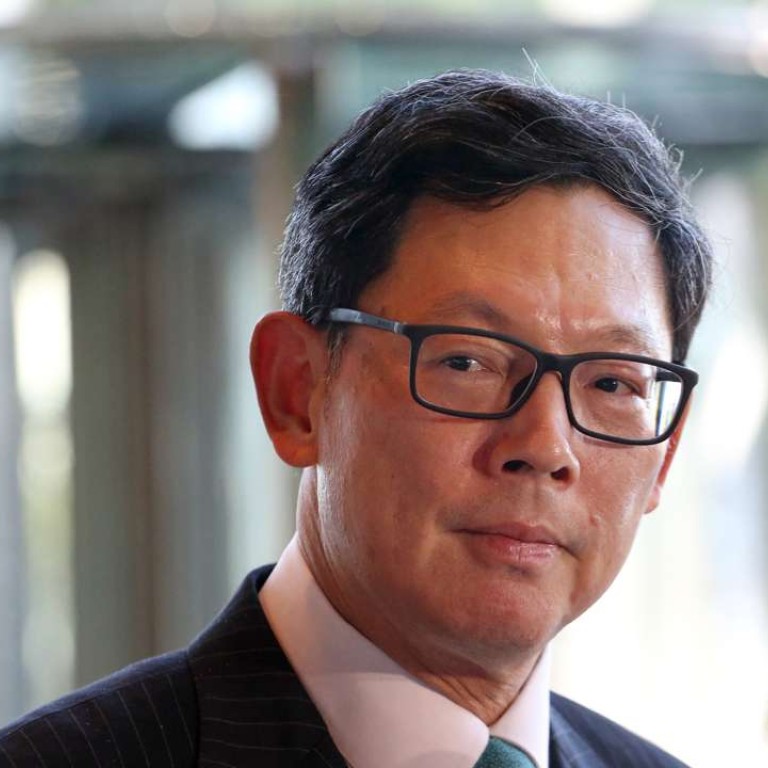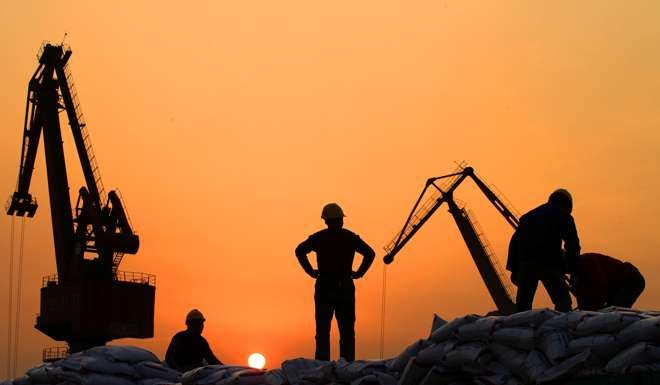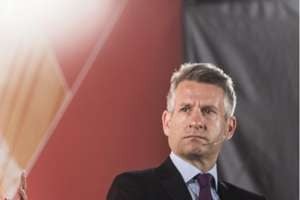
HKMA’s Chan urges Asian countries to further develop their bond markets to fund Belt and Road projects
Norman Chan expects US$800 billion worth of funding will be needed to build projects planned for the ‘One Belt, One Road’ initiative by 2020
Norman Chan Tak-lam, Hong Kong Monetary Authority’s (HKMA) chief executive, was joined on Tuesday by other senior figures in the financial industry to urge Asian governments to develop their own domestic bond markets to generate the likely US$800 billion worth of funding needed to build the countless projects planned for the “One Belt, One Road” initiative.
“That’s the amount which will be needed by 2020, and this is going to offer huge opportunities for infrastructure financing in the region,” Chan told the 10th Asian Financial Forum, being held in Hong Kong, and which this year has attracted record 2,800 delegates.

Chan said the Hong Kong capital market, packed with major banking institutions, could become the perfect platform to support the projects’ financing needs.
Mid last year the HKMA set up the Infrastructure Financing Facilitation Office to help promote the class of businesses.
The Belt and Road was initiated by Beijing in 2013 with the goal of building roads, railways, airports, ports and other infrastructure linking China with India and other Asian, Middle Eastern and European countries, to grow trade and economic ties.

Joining Chan on a panel discussion on Asian infrastructure demands, Gordon French, HSBC’s group general manager and head of global banking and markets, said the projects involved huge sums of money that could not rely on bank loans alone.
He said previously small-scale Asian infrastructure projects were generally 60 per cent funded by bank borrowing, 10 per cent by bonds, and the rest by investors.
“Nowadays, the regulations on capital requirements are higher and the infrastructure projects are much bigger. They cannot rely so heavily on bank borrowing.
“This is why it is important for Asian countries to develop their own domestic bond markets to support the likely financing that will be needed,” French said.
These infrastructure projects] cannot rely heavily on bank borrowing. This is why it is important for Asian countries to develop their own domestic bond markets to support the likely financing that will be needed
“Many countries along the Belt and Road routes have very high domestic savings. The development of domestic bond markets would help channel these savings to finance these future infrastructure projects.”
Another panel member was Ben Way, chief executive of Macquarie Asia, who said he knew of 195 Belt and Road projects so far needing to raise at least US$300 billion in bonds or equity over the next five years.
Many of these deals are in emerging markets so if they issue bonds, the yield needs to be higher than those offered in the developed bond markets to attract investors.

Suyi Kim, managing director and head of Asia Pacific at the Canada Pension Plan Investment Board, told the panel that large pension fund operators would also be likely to want to invest in the Belt and Road infrastructure projects, provided they are structured appropriately.
As an example, she said many toll roads in India were too small for her fund.
But that the Indian government is now creating a better platform for its road-toll network to raise funds which could meet with the requirements of larger investors.

